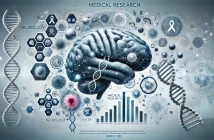Nikita N., freelance scientific writer on Kolabtree, outlines the top applications of data analytics in healthcare.
The term “Data analytics” is the practice of accumulating vast quantities of data, which are analyzed and essential insights are drawn from the information contained. Nowadays, new software and technologies make it easier to examine large volumes of data for hidden details.
Off late, the healthcare industry has become increasingly demanding. The increase in the number of patients has made it difficult for doctors and staff members to manage work efficiently. According to a McKinsey analysis report, health-care expenses for the USA are 17.6% of GDP, which is almost $600 billion more than the benchmark of the United States’ wealth and size. With the rise in such needs, data analytics can serve as a promising solution to solve issues in the healthcare industry. According to market analysis, the data analytics sector is expected to be more than $68.03 billion by 2024. The target healthcare sectors where data analytics can bring a significant change include Drug Discovery, Disease Prevention, Diagnosis, Treatment, Post-Care Monitoring, Hospital Operations.
Applications of data science in healthcare
Drug Discovery
Generally, the drug discovery process takes a long time, about 12 years, and costs way too much, about $2.6 billion. Data analytics increases the drug delivery process rate in medical science, helping to gain faster approval in the Food and Drug Administration and curing patients faster. Quite a few companies are developing artificial intelligent machines for applications in various sectors. For example, the company BenevolentAI has developed different artificial smart devices such as a bioscience machine brain and other model algorithms to create new medicines for hard to treat diseases. The organization is an example of a fully integrated AI company with clinical development and pharmaceutical discovering capabilities. The technology revolutionizes pharmaceutical industries by lowering costs, decreasing failure rates, and delivering medicines to the patients at a faster pace.
Disease Prevention
Data analytics prevents diseases by early recognition of risks, and the tools also recommend preventive plans. Various smart devices using data analytics use people’s genetic information and historical patterns to recognize issues before it gets out of hand.
Various companies are developing smart devices that use data analytics to analyze patients’ various behavior plans at an early stage, which can help prevent diseases such as chronic health conditions, such as diabetes, hypertension, and high cholesterol at an early stage.
Diagnosis and Treatment
Another useful application of data science in healthcare is medical imaging, wherein the algorithms efficiently interpret X-rays, MRIs, mammographies, and other types of images, which helps in the identification of patterns in the data and detection of tumors, organ anomalies, artery stenosis clearer. Data analytics algorithm models can diagnose irregular heart rhythms from ECGs faster than a cardiologist and clearly distinguish between images of malignant lesions and benign skin marks.
Today’s treatment in healthcare has become more comfortable with the availability of more data on individual patient characteristics, enabling the delivery of more precise prescription data and personalized care. Data science is enhancing the emerging field of gene therapy. Inserting genetic material into cells and replacing traditional drugs is more manageable than before.
Analytics consulting companies like Bain or ScienceSoft can develop data analytics software for various industries, including the healthcare industry. There exists a lack of patient-caregiver communication between appointments and a lack of patient engagement for patients with various chronic diseases such as diabetes, asthma, cardiovascular diseases. The software received from the EHR and a patient, analyzes the health data, and alters care team members or the patients for effective solutions. It’s mobile patient application, and an EMR-integrated desktop application enable whether prescribed medicine conflicts with a patient’s current condition and disease. The data analytics software helps manage cost by tracking expenses on treating the condition over the full cycle of care. It finds opportunities to substantially reduce costs without negatively affecting outcomes, and compare costs of caring for a condition with the results.
Companies such as NextBio are developing data analytics models to customize patient’s treatment as well and provide more available options by examining previous clinical and genomic data. For example, radiation therapy is the only form of treatment for cancer patients. Data analytics models provide customized treatment and offer alternative treatment methods.
Post-Care Monitoring
Another area where data analytics finds interesting applications is for treating home-based patients. Generally, after surgeries, patients complain of complications and recurring pain, which is difficult for doctors to manage when they leave the hospital. The application of data analytics in Remote in-home monitoring makes it easier for doctors to stay in touch with patients. Hence, cutting down the need for expensive hospital resources. For example, based on the EMR data, hospitals can predict when the patients would need to be readmitted in the next 30 days,
Hospital Operations
Data analytics help to enhance the workforce of the staff members at Hospitals by assigning them certain hours, ensuring enough hospital beds are available, enhancing utilization in the operating room. Another data analytics tool, i.e., Predictive analytics, can optimize scheduling.
The future of data science in healthcare
Just like every industry, the usage of data science in healthcare has its pros and cons. The data in hospitals and administrative units are generally in a desperate state. It is challenging to integrate data analytics into the healthcare system. Patients are concerned about the privacy and protection of their health information. There is no dearth of doubt that data science can solve the shortage of doctors. However, many people are concerned about losing the patient-doctor relation to computer algorithms. Nevertheless, the amalgamation of data analytics and healthcare is expected to grow in the coming years. Market analysis reveals that data analytics in healthcare will reach $34.27 billion by 2022 at a CAGR of 22.07%.
Indeed, data science is one avenue to enhance the quality of the healthcare sector by having applications in early diagnosis of diseases, medical imaging, faster drug discovery, and handling complex hospital operations in rural areas as well, helping to cure significant diseases such as AIDS, cancer, and Ebola.
Need to hire a health data analyst? View health data analysts on Kolabtree or post your project for free. POST A PROJECT NOW







